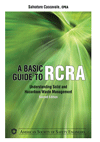In a little more than two decades, worsening summer heatwaves could kill 13,860 Americans a year, according to a new report released by the Natural Resources Defense Council (NRDC), in response to President Trump’s withdrawal of the U.S. from the Paris climate agreement.
In “Killer Summer Heat, Paris Agreement Compliance Could Avert Hundreds of Thousands of Needless Deaths in America’s Cities,” the environmental organization warns that the action could seriously harm public health for decades, resulting in approximately 150 Americans dying daily in the 2040s and about 325 dying each climate-fueled hot summer day in the 2090s in 45 of the nation’s largest cities.
The NRDC is urging the U.S. to slash the key driver of climate change: carbon pollution from power plants and vehicles.
Superheating summer
“This report carries a dire warning: Reneging on our climate commitments could cause tens of thousands of Americans to die,” said Juanita Constible, special projects director in NRDC’s Climate & Clean Air program. “If carbon pollution isn’t reined in, climate change will continue superheating summer with terrible consequences for public health in some of our biggest cities.
The top 15 cities in order of potential annual deaths by the 2090s are: New York City (7,370); Philadelphia (5,040); Chicago (2,440); Boston (1,340); Baltimore (1,010); Detroit (870); Providence, RI (670); St. Louis (640); Buffalo (620); Rochester, NY (600); Cincinnati (580); Cleveland (570); Washington, DC (560); Los Angeles (540); Louisville (530).
The "heat island" effect
City dwellers are especially vulnerable to climate impacts because of the “heat island” effect. Urban areas are hotter than suburban and rural areas because of their concentration of buildings, pavement and roofing, which intensify summer temperatures. And the most vulnerable to the impact from the heat island effect are the elderly, the young, the poor and people of color, the report finds.
“Congress and President Trump should act, and soon, to protect Americans from these needless summer deaths. That’s starting with supporting—not gutting— the Environmental Protection Agency and re-instating our international commitments to fight climate change.”
The NRDC wants the U.S. to remain in the Paris Agreement, address climate change and accelerate a transition to clean energy.
Sixteen of the 17 hottest years since recordkeeping began in the 1880s have occurred in this century. The report shows that full implementation of the Paris Agreement will help limit global warming and could reduce excess American deaths each summer - but even with full compliance, deaths during dangerous summer days will increase.
Methodology
To reach their conclusions, the report authors relied on analysis using a weather classification system called Spatial Synoptic Classification, which researchers use to study relationships between dangerous weather and human health.
The analysis estimated the historical number of dangerous summer days in the country’s largest urban areas with populations exceeding one million and the relationship to excess deaths—those above the daily standardized summertime average for that area. That was calculated against a no-action scenario of continued heavy use of fossil fuels, and an intermediate scenario factoring in expansion of clean energy.
The report “Killer Summer Heat, Paris Agreement Compliance Could Avert Hundreds of Thousands of Needless Deaths in America’s Cities,” is here: https://www.nrdc.org/resources/killer-summer-heat-paris-agreement-compliance-could-avert-hundreds-thousands-needless
A blog by Juanita Constible, special projects director in NRDC’s Climate and Clean Air Program, about the report is here: https://www.nrdc.org/experts/want-reduce-needless-summertime-deaths-act-climate
About the NRDC
The Natural Resources Defense Council (NRDC) is an international nonprofit environmental organization with more than 2 million members and online activists. www.nrdc.org, on Twitter @NRDC.



